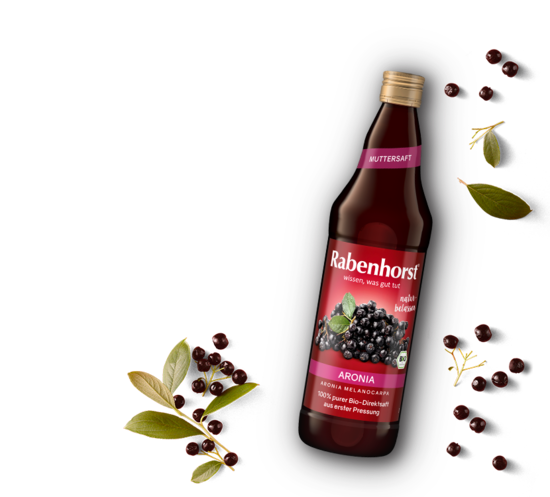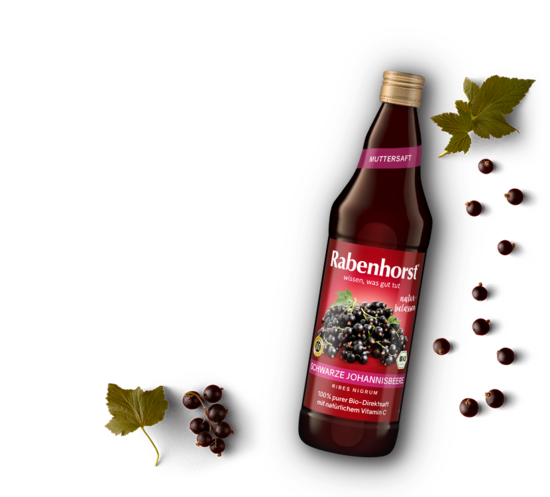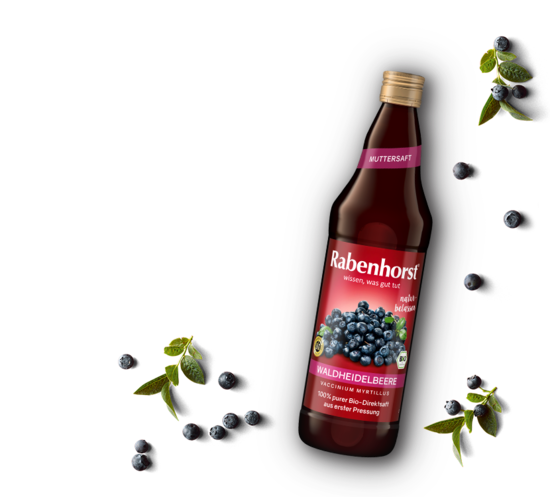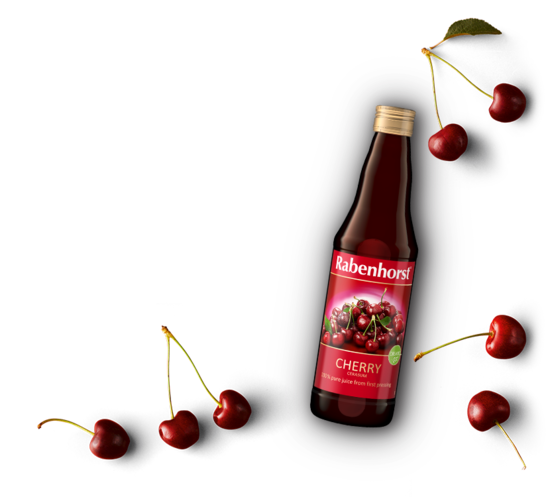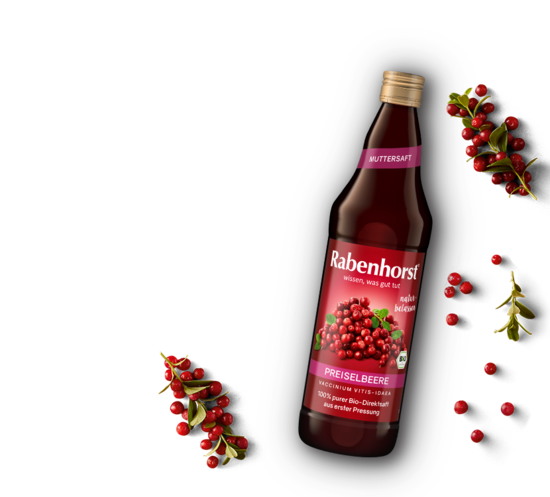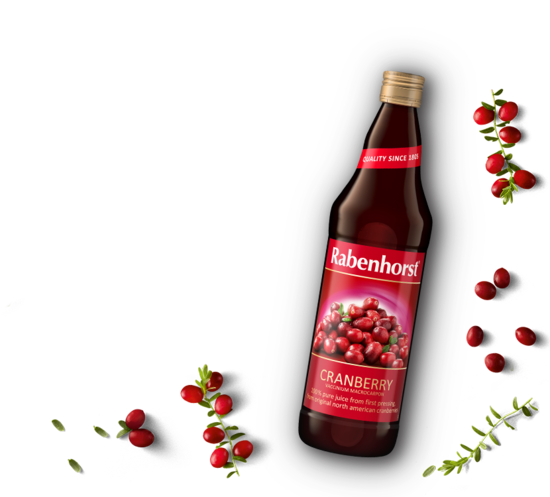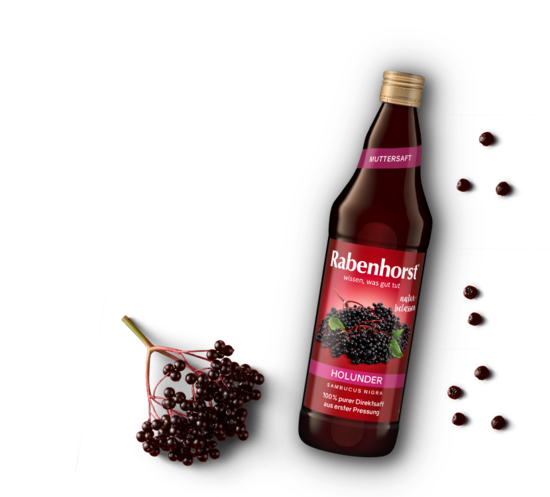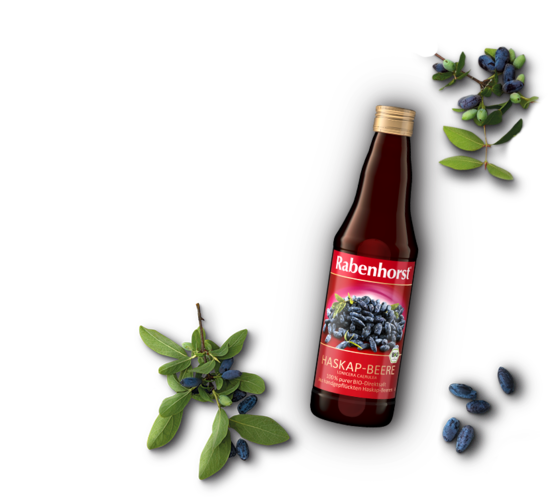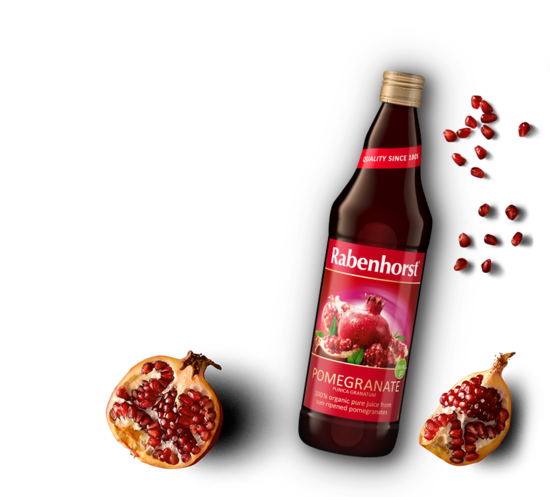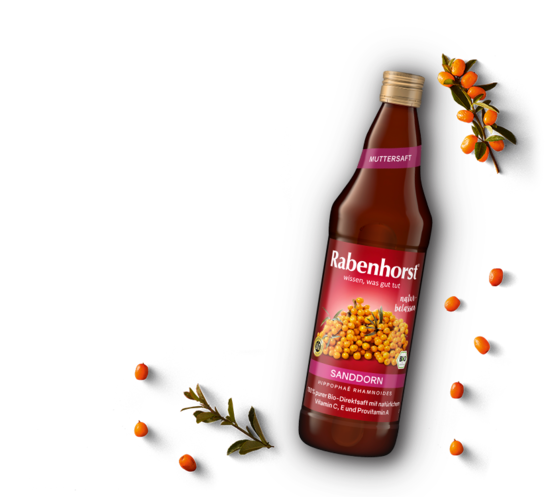
Pure juices from first pressing
100 % pure juice and we leave it at that.
Pure juice from first pressings, also called pure juices, are juices from the first pressing. No or only very few natural cloudy substances are removed from them. Due to the particularly gentle processing and bottling at Rabenhorst, a large number of natural ingredients are preserved. Find out more about Rabenhorst's diverse pure juices from first pressing here.
Interesting facts about pure juice from first pressing
What actually makes pure juice from first pressing so special and how is it produced? Find out everything you need to know about pure juices from first pressing here.
FAQ
What is pure juice from first pressing?
A pure juice from first pressing is a pure juice. This is juice from the first pressing, from which only very few natural cloudy substances are removed. There are certain criteria that must be met for a juice to be called pure juice. A pure juice is therefore always a juice in which only the original, fruit-own components of the processed fruits can be found.
What distinguishes pure juice from first pressings from other types of juice?
Not all juices are the same. In Germany, the designation of fruit beverages is strictly regulated by the Fruit Juice Ordinance. Pure juice from first pressing and pure juice has 100% fruit content. In the case of fruit juice made from fruit juice concentrate, concentrate is first made from the fruit by extracting the fruit's own water and flavour from the juice. Water and aroma are then later added to this concentrate. In this way, fruit juice made from fruit juice concentrate tastes consistently the same. Fruit juice from fruit juice concentrate also has a fruit content of 100%. Our fruit nectar contains 25-50% fruit. You can read the details here.
How is pure juice from first pressing made?
After the harvest, the raw fruit is brought to us. When we receive them, we make sure that the berries and fruits are fully ripe and aromatic. We only process fresh produce. If the raw produce passes our high-quality standards, it is sorted and crushed. This helps with the subsequent pressing. We press the fruit only once in our own press house. This is how we produce our premium pure juice. After pressing, the juices are separated, i.e. the juice is separated from the pomace. Pomace is the term used for the residue left over after pressing. At Rabenhorst, natural cloudy substances are then removed by filtering. In the case of our pure juice from first pressings, only a few natural cloudy substances are removed. Afterwards, we gently pasteurise the juice to make it last longer. This gentle short-time heating ensures our quality so that the juices retain their natural colour and the natural smell of the berries and fruits. Finally, the juices are gently bottled in our brown light-protected bottle.
When producing a pure juice from first pressing, it is not possible to standardise the taste and aroma. Certain variations in taste and aroma have to be accepted because the fresh fruits used also vary slightly in taste and aroma and we preserve their natural aroma in our juices.
What should I keep in mind when consuming the pure juice from first pressings?
Because we only remove a few natural cloudy substances, a sediment can form in our pure juice from first pressings. You can then simply shake the juice so that they dissolve back into the juice. It does not affect the taste or quality of the juice. It is a sign that many natural ingredients of the fruits and berries have been preserved.
What makes Rabenhorst fruit juices so special?
We only use fresh market quality fruits for our juices. These fruits are ripe and aromatic, which also makes our juices particularly aromatic. Our pure juices from first pressing are characterised by their tart, tangy taste.


